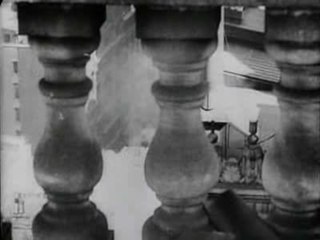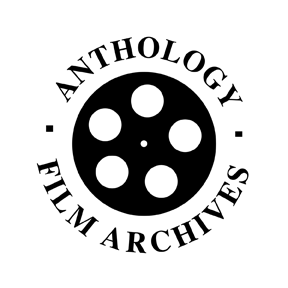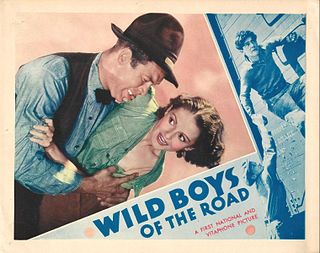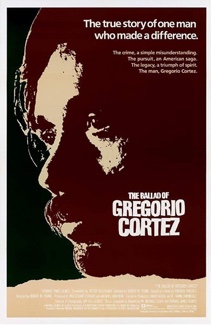Related Research Articles

Force of Evil is a 1948 American crime film noir starring John Garfield and directed by Abraham Polonsky. It was adapted by Polonsky and Ira Wolfert from Wolfert's novel Tucker's People. Polonsky had been a screenwriter for the boxing film Body and Soul (1947), in which Garfield had also played the male lead.

Manhatta (1921) is a short documentary film directed by painter Charles Sheeler and photographer Paul Strand.

Faces is a 1968 American drama film written and directed by John Cassavetes. It stars John Marley, Gena Rowlands, Lynn Carlin, Seymour Cassel, Fred Draper, and Val Avery.
Precious Images is a 1986 short film directed by Chuck Workman. It features approximately 470 half-second-long splices of movie moments through the history of American film. Some of the clips are organized by genre and set to appropriate music; musicals, for example, are accompanied by the title song from Singin' in the Rain. Films featured range chronologically from The Great Train Robbery (1903) to Rocky IV (1985), and range in subject from light comedies to dramas and horror films.

Antonia: A Portrait of the Woman is a 1974 documentary about symphony conductor Antonia Brico, including her struggle against gender bias in her profession. The film was directed by Judy Collins and Jill Godmilow. It was nominated for an Academy Award for Best Documentary Feature.
Film Portrait (1972) is a full-length autobiographical film directed by, and about, the life of Minnesotan film-maker and artist, Jerome Hill.
Nostalgia, styled (nostalgia), is a 1971 American experimental film by artist Hollis Frampton. It is part of his Hapax Legomena series.
Rose Hobart is a 1936 experimental collage film created by the artist Joseph Cornell, who cut and re-edited the Universal film East of Borneo (1931) into one of America's most famous surrealist short films. Cornell was fascinated by the star of East of Borneo, an actress named Rose Hobart, and named his short film after her. The piece consists of snippets from East of Borneo combined with shots from a documentary film of an eclipse.

Castro Street (1966) is a visual nonstory documentary film directed by Bruce Baillie.

Garlic Is as Good as Ten Mothers is a 1980 documentary film about garlic directed by Les Blank. In 2004, the film was selected for preservation in the United States' National Film Registry by the Library of Congress as being "culturally, historically, or aesthetically significant." The Academy Film Archive preserved Garlic Is as Good as Ten Mothers in 1999.

Wild Boys of the Road is a 1933 pre-Code Depression-era American drama film directed by William Wellman and starring Frankie Darro, Rochelle Hudson, and Grant Mitchell. It tells the story of several teens forced into becoming hobos. The screenplay by Earl Baldwin is based on the story Desperate Youth by Daniel Ahern. In 2013, the film was selected for preservation in the United States National Film Registry by the Library of Congress as being "culturally, historically, or aesthetically significant".

The National Film Registry (NFR) is the United States National Film Preservation Board's (NFPB) collection of films selected for preservation, each selected for its historical, cultural and aesthetic contributions since the NFPB's inception in 1988.
Reminiscences of a Journey to Lithuania is a 1972 documentary film by Jonas Mekas. It revolves around Mekas' trip back to Semeniškiai, the village of his birth. It was Mekas' second diary film, which narrates through highly personal footage and voiceover the Mekas brothers’ visit to their native Lithuanian village of Semeniškiai, Panevėžys in 1971 after a 27-year absence.
The Lead Shoes is a 1949 experimental film directed by Sidney Peterson at Workshop 20 at the San Francisco Art Institute. The film was made using distorting lenses. The film is a 17 minute black and white short.
Our Lady of the Sphere is a 1969 American experimental film directed by Larry Jordan.
Robert Carlton Breer was an American experimental filmmaker, painter, and sculptor.
Crisis: Behind a Presidential Commitment is a 1963 direct cinema documentary film directed by Robert Drew. The film centers on the University of Alabama's "Stand in the Schoolhouse Door" integration crisis of June 1963. Drew and the other filmmakers, including D. A. Pennebaker and Richard Leacock, were given expanded access to key areas, including United States President John F. Kennedy's Oval Office and the homes of United States Attorney General Robert F. Kennedy and Governor George Wallace of Alabama. The film first aired on the American Broadcasting Company (ABC) as an installment of Close-Up! four months after the incident, on October 28, 1963. It was added to the National Film Registry of the Library of Congress on December 28, 2011.
Tom, Tom, the Piper's Son is a 1969 American experimental film made by Ken Jacobs.

The Ballad of Gregorio Cortez is a 1982 American Western film directed by Robert M. Young and starring Edward James Olmos as Gregorio Cortez. It is based on the book With His Pistol in His Hand by Americo Paredes.
References
- ↑ Robert Breer obituary- Film-The Guardian
- ↑ Robert Breer (1926-2011)-Cartoon Brew
- ↑ "Librarian of Congress Adds 25 Films to National Film Registry". Library of Congress. Retrieved 2020-10-02.
- ↑ "Complete National Film Registry Listing". Library of Congress. Retrieved 2020-10-02.
- ↑ "Essential Cinema". Anthology Film Archives . Retrieved 2022-09-12.